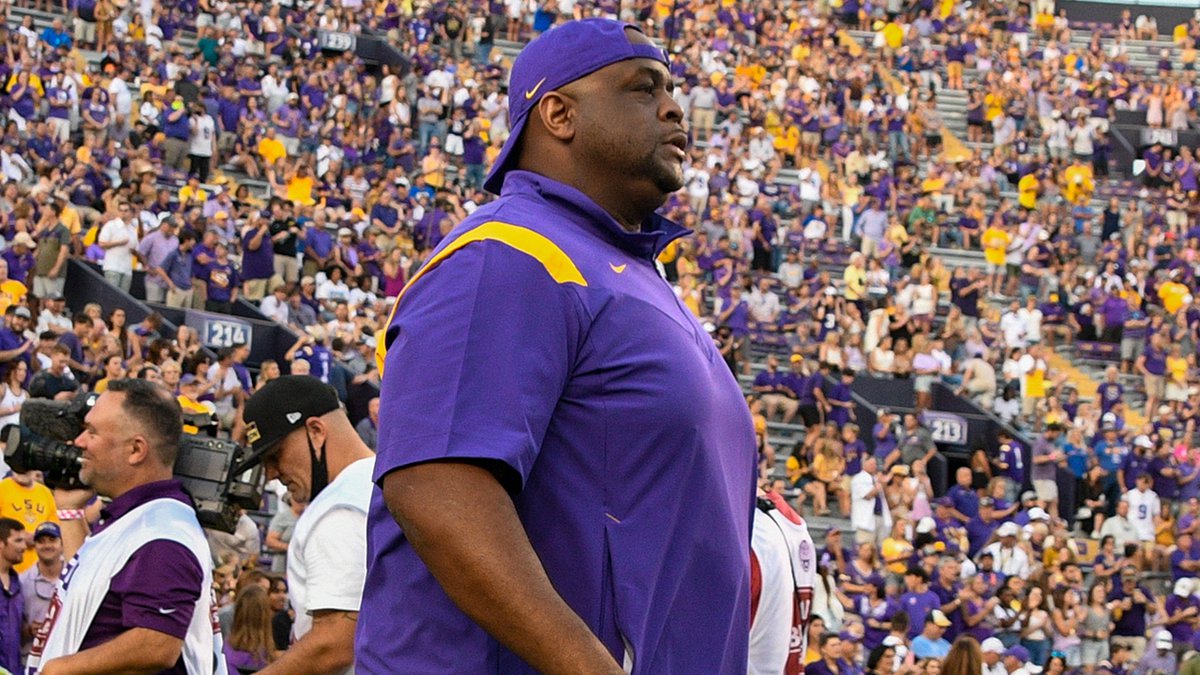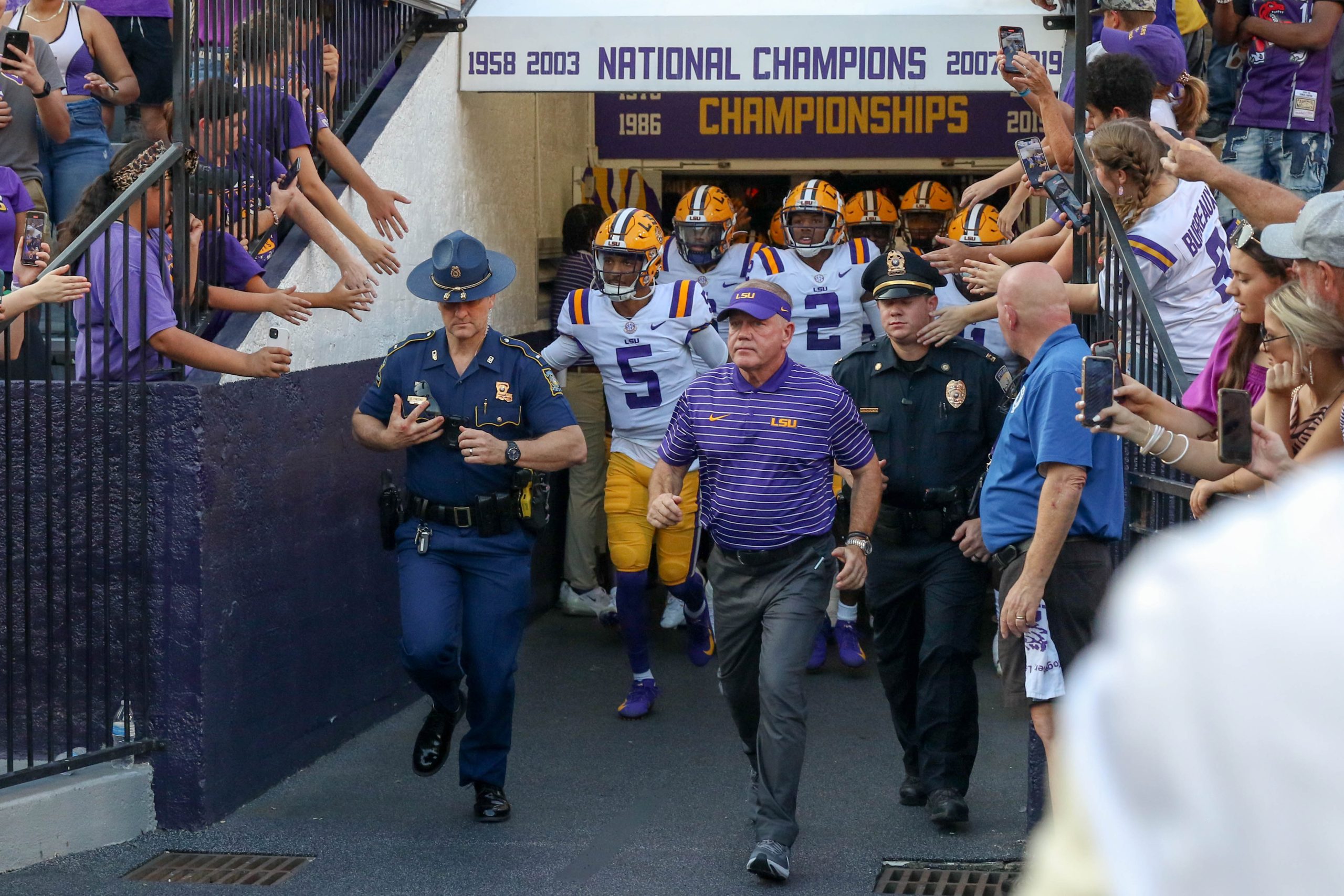
LSU athletic department not subject to university budget belt-tightening
by Piper Hutchinson, Louisiana Illuminator
April 3, 2025
The LSU athletic department is not subject to budget belt-tightening measures the university announced for all departments last week amid an uncertain fiscal outlook, a school spokesman said.
LSU President William Tate announced last week the university would withhold 2% of each department’s budget, with 75% of that money going to a fund to support academic and research initiatives. This won’t apply to the athletic department , LSU spokesman Todd Woodward said in a statement to the Illuminator and Tiger Rag, because it is considered an auxiliary to the university.
During difficult budget times for the university in the past, LSU’s athletic department has transferred money to the university. After Gov. Bobby Jindal slashed the state budget, the athletic department began making annual transfers.
The school received tens of millions of dollars from its sports programs from 2012-19, when athletic director Scott Woodward ended the practice shortly after he took the job.
“It’s something that’s very dangerous, when universities rely on recurring money, especially from an auxiliary like the athletic department,” Woodward told Tiger Rag in 2019. “So no, I think, while I will always support the university in some form or fashion, we can not sustain what we’re currently doing.”
As the rest of the university gets ready for cutbacks, Todd Woodward — no relation to the athletic director — said the university is not asking for help from athletics.
Universities, particularly research institutions such as LSU, are bracing for tough times as the Trump administration makes dramatic reductions to agencies that fund research on college campuses and at their affiliated medical schools and research institutions. Many of these cuts are on pause, pending the outcome of litigation.
LSU spent $488 million on research in fiscal year 2023, the most recent period for which data is available. Most of that money came from federal grants.
LSU could lose $12 million if Trump’s proposed cut to indirect cost reimbursements for National Institutes of Health grants are allowed to go into effect, and it would lose tens of millions more if other agencies followed suit.
GET THE MORNING HEADLINES.
Even if the athletic department was asked for help, its currently strained fiscal position could make that difficult.
LSU’s sports programs collectively operated at a deficit in fiscal year 2024, according to a Louisiana Legislative Auditor’s report. It’s the third year in a row the athletic department finished the business year in the red.
The department is currently in a hiring freeze because of its budget constraints.
“I would certainly hope that moving forward, if they do have surplus in their budget, that they would want to support the academic side of campus as they have in the past,” LSU Faculty Senate President Dan Tirone said in an interview.
“I think that athletics has some questions about their own financial status at the moment, given some of the changes with the NCAA and some of the obligations they may be taking on,” he added.
College athletic departments anticipate increased expenses as they prepare to start sharing revenue with student athletes. Starting next fiscal year, LSU has to find approximately $20 million more to share with its athletes.
LSU athletics spokesman Zach Greenwell declined to make an athletics official available to discuss the department’s budget.
Most major athletic programs are expected to pay the full amount allowed under a settlement in the federal case, House v. NCAA, in which former college athletes sued the athletic association over rules that prevented them from profiting on their names, images and likenesses (NIL).
The proposed settlement, which is expected to be finalized in the coming weeks, will require schools to share athletic revenue of up to $22 million. It also requires the NCAA to provide back pay to former athletes who competed before it allowed NIL payments.
This increase in expenditures for major programs such as LSU could mean fewer handouts to struggling universities, sports administration scholars say.
“Anytime a department – athletics or otherwise – is helping out the broader university, it’s usually because of some sort of marginal budget,” said Adam Cook, a sports administration lecturer at Northwestern University.
Steven Rackley, a sport management professor at Rice University and a longtime former athletic director, said in an interview the cost of revenue sharing hitting at the same time as proposed federal funding cuts for higher education will force difficult decisions.
“Presidents and board of trustees, whoever it may be, are going to have to decide how much is athletics worth as opposed to the worth of doing research in academia on campus, and that’s going to be just a tough discussion that those people are going to have to have,” Rackley said.
The athletic department not pitching in during a difficult budget time could increase the chronic tension between faculty and athletics, which exists at nearly every university, Rackley said.
“Those are the kind of things that make things challenging, where people look at athletics as being special, or they don’t have to do their part,” he said. “If athletics said, ‘Yeah, we were going to jump in here and do our part,’ I think that would really alleviate some of that [tension] and help bring some people back to supporting athletics.”
Some universities could be looking to institutional support or student athletic fees to help fill budget gaps.
LSU currently does not have a student fee supporting athletics, although other Southeastern Conference schools do, including Auburn, Georgia and Ole Miss. Their athletic departments bring in millions from these fees, according to data from the Knight-Newhouse College Athletics Database. With an annual collection of almost $7 million, Auburn brings in the most in the SEC in student fees.
Seeking a student fee for athletics at LSU would come with its own complications. The university has increased tuition for certain high-cost programs, and state lawmakers are considering legislation that could decrease how much state financial aid LSU students receive.
YOU MAKE OUR WORK POSSIBLE.
Louisiana Illuminator is part of States Newsroom, a nonprofit news network supported by grants and a coalition of donors as a 501c(3) public charity. Louisiana Illuminator maintains editorial independence. Contact Editor Greg LaRose for questions: [email protected].




Be the first to comment